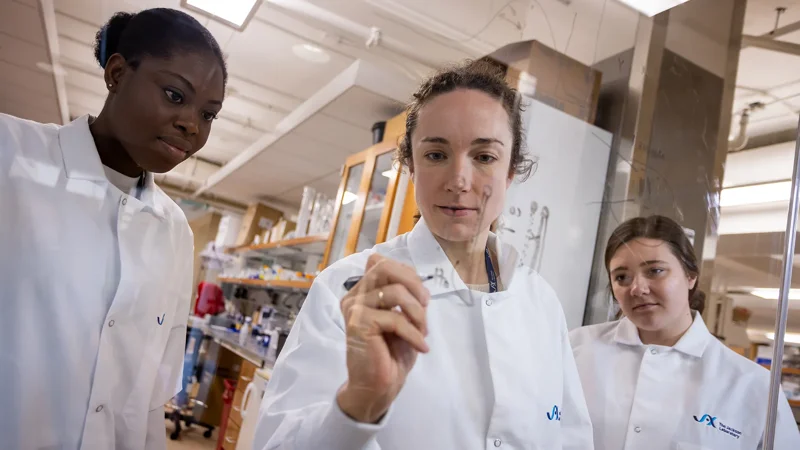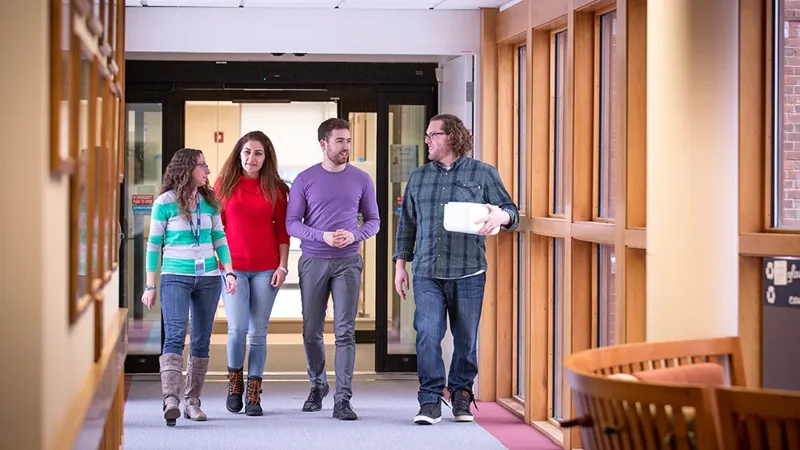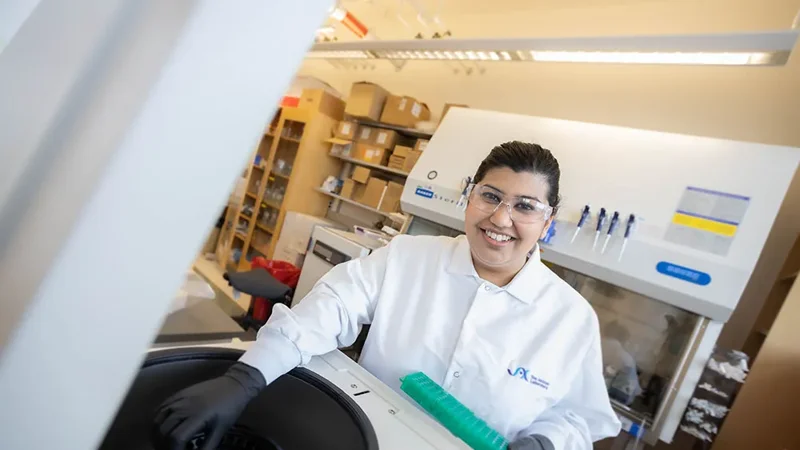
This two-year scientific training program allows you to undertake an independent research project and strengthen your professional and laboratory skills before pursing an M.D./Ph.D. or Ph.D.
Learn more
JAX offers Ph.D. students an exceptional opportunity to gain expertise in mammalian genetics and genomics in partnership with our degree-granting partner universities U Conn, Tufts, and U Maine.

JAX offers postdocs a unique research environment with access to unparalleled mammalian genetics resources, scientific services, and professional development programs.

The JAX Scholar award offers exceptional early-career scientists the opportunity to develop their independent research program at The Jackson Laboratory in preparation for the next step in their scientific career.
Training & Events